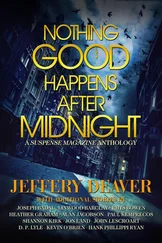That had been the case that made Evans’s career.
“I owe you for that one. Always have. So, listen, Lincoln. I’ve got some buddies in New Jersey State Police. They use consultants, no problem.” He chuckled. “And, I mean, plenty of homicide in New Jersey, right? The Sopranos .”
Rhyme had no idea what opera singers had to do with murder in New Jersey, but there was no disputing his premise.
“They’d love you on board.”
“Appreciate it, Brett,” Rhyme said, not adding that he wouldn’t take a job with that outfit, as fine as it was, because his expertise was New York City and he was not inclined to begin his education anew into infrastructure, geography and culture.
And then there was the commute...
“I also know some people at commercial forensic operations in the city,” Evans added. “That work can be just as challenging, right?”
No, it didn’t come close. He said, “I’m sure it is. But for now I just need to think about things for a bit.”
“Sure. I understand. You should know, there’re more than a few of us here think this is bullshit.”
But there were some important ones who did not.
“Thanks for the call, Brett.”
Rhyme was tired, bone tired. He summoned Thom, who escorted him upstairs in the tiny elevator and got him ready for bed.
Soon he was lying on the elaborate, mechanically operated mattress and starting to doze off. Just before sleep arrived, though, he thought: Yes, indeed he was a pawn in the chess game of state politics — a piece that had been removed from the board, without sufficient tactical forethought.
And, unable to avoid belaboring the metaphor a bit longer, he wondered: Just how would his sacrifice affect the endgame?
When is a truck not a truck?
Viktor Buryak was alone, cats excepted. He was jotting notes on the results of the auction and he was pleased. The wire transfers from the three bidders were already in. With Buryak, customers always paid up front.
Everyone had bought something. Welbourne, the truck. The twins, the boat. And Kevin Duggin picked up a backhoe.
Buryak was, he felt, part of a new generation of mobsters. That didn’t mean he was Gen ZZ or whatever was current, of course. Buryak was in his fifties, conservative, a traditionalist. He wore a suit every day, usually with a stylish vest. He polished his shoes. He never indulged in illegal substances — and why would he when he had tea and his first favorite beverage, fine brandy?
And neither did new generation mean developing and selling state-of-the-art designer drugs to those who were under thirty but who had a six-figure disposable income.
No, the innovative part was what his company, VB Auctions, actually sold.
The bidders in tonight’s auction had no need for any such equipment and wouldn’t even take delivery. Buryak was cautious to the edge of paranoia and so he’d come up with the idea of a phony auction.
What the men had really been bidding for was the commodity that was Viktor Buryak’s specialty, and perhaps the most dangerous product in the city. Worse than drugs, plastic explosives, poisons, machine guns.
Information.
The “dump truck” that stone-faced Welbourne bought was really a file that Buryak and his employees would assemble. It would contain exacting details of shipments of fentanyl and OxyContin from a warehouse in Pennsylvania to Virginia to New York and on to its ultimate destination in Connecticut (the circuitous route, which involved using separate trucks decorated with fake signage, was for security).
The file would also include the names of the drivers, their personal information (family members too) and the names of police in each jurisdiction the trucks would roll through, including, in New York City, a few precincts with cops who could be counted on to turn a blind eye, or even help Welbourne’s hijackers.
The “boat” the Twins had bought was a dossier on a man named Suarez who’d come to New York from Miami, with a small crew, and was planning on starting a drug operation that catered to the Latinx population. It was small-time and not much of a threat to any of the bidders, but the dossier could be used to guarantee that the man would have to kick over a good portion of the take to the winner. It contained sexting messages between the married Suarez and a mistress. Selfies too of both of them, several naked in bed, the bath, the floor, the kitchen island (really? Buryak had thought). The girlfriend was, literally, that: a girl, sixteen, which made the pictures child pornography and their self-documented activities statutory rape.
Suarez would pay big.
Duggin had gone away happy too. The “backhoe” was a year’s worth of monthly reports on when and where the NYPD vice and drug teams would conduct raids. Duggin’s specialty was sex trafficking, and his crew ran more than a dozen massage parlors in the city. Buryak had been amused when, after he won the auction, Duggin had brayed a laugh. “Bought myself a back- hoe. Damn.”
As a cover, yes, VB did move industrial machinery and made a fair profit doing so. But the golden kernel of the operation was what took up ninety percent of the time, resources and space: the research department, which operated much like a corporate espionage/private eye/data-mining firm. His people conducted interviews and performed surveillance and collected data. But they dug much, much deeper to unearth sensitive information that no one else could provide.
Admittedly, some of the practices were questionable — using Bulgarian and Czech Republic hackers (they were the masters). And then there was always the ever-popular business model of extortion, blackmail and broken limbs or threatened children.
Knowledge is power, and armed with Buryak’s facts and figures, the crime bosses in the New York area were thriving. Arrests were down by thirty percent and an outfit paying for Buryak’s services could count on hobbling an upstart competitor before they got a toehold in the territory. And the products and services that Buryak didn’t deal in, but that his clients did, proliferated all the more abundantly on the streets of New York, Bridgewater, Newark, Trenton and every other supermarket catering to consumers with that insatiable need for drugs, guns, sex, stolen credit cards and merchandise.
His success, he knew, put a figurative price on his head. The police and FBI wanted desperately to stop him. Look at that bullshit Leon Murphy case. Utterly trumped up. But no one was more security minded than he was, a lesson learned early, on the streets in Kiev when his father — a loud and proud organized criminal — was arrested in front of the family home by police who decided that lifting his hands and crying “Ne zachepy moho syna!” warranted bullets in his head.
At least they heeded his plea and did not in fact hurt his son. They told the boy to stick to the straight and narrow — well, an equivalent Ukrainian cliché.
But, of course, he did not. The fourteen-year-old knew only his father’s calling, but from that blood-spattered moment on, he followed what he called “prophylactic practices” to stay safe, alive and out of prison.
He convinced his mother to move to the U.S., where at least due process would give you a fighting chance and lawyers could be miracle workers. He identified a pretty and moderately sexy woman who was Ukrainian American and he became a citizen of the country. On the surface he was a legitimate businessman, running a successful company. He was active in church. He donated to good causes and served on charitable boards.
None of which fooled a single soul. There was no doubt among the authorities he was data-miner-in-chief to the gangs — the “Godfather of Information,” some paper dubbed him — but proving it was another matter. This, he knew, was why the prosecutor clutched at straws and tried to bring him down with that bogus murder charge.
Читать дальше
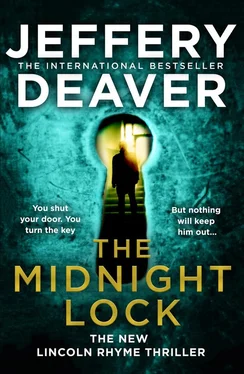
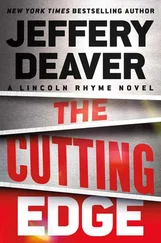

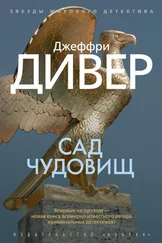
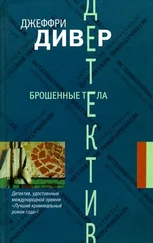

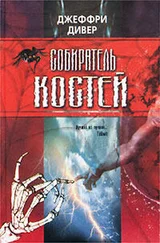
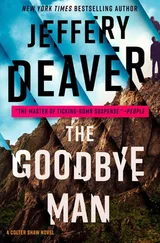
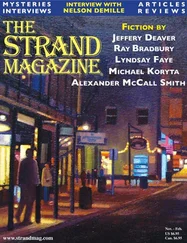
![Джеффри Дивер - Where the Evidence Lies [A Lincoln Rhyme Short Story]](/books/403782/dzheffri-diver-where-the-evidence-lies-a-lincoln-r-thumb.webp)


